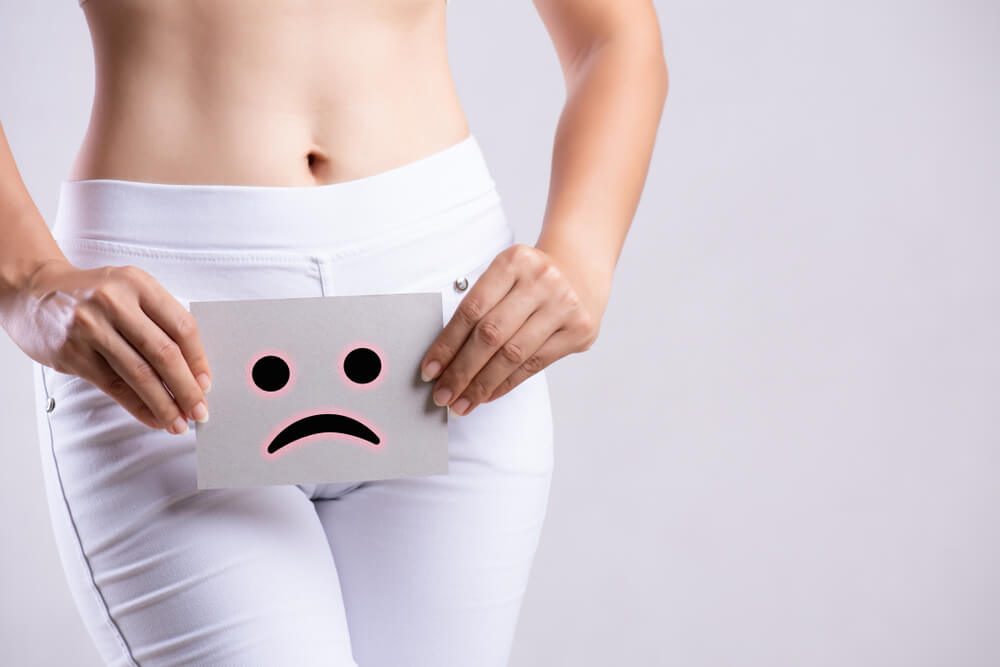Although it does not sound as serious, vaginal dryness can be a very painful condition that the majority of women experience at a certain point in their lives. There are different causes of this occurrence, but most commonly, the main culprits are hormone imbalance, use of medication, or breastfeeding.
The dryness of the vagina is very often connected to women who are menopausal, but this does not have to be the case. Whatever the cause might be, it is a harrowing experience that affects a person’s quality of life every day, even during activities such as sitting, peeing, exercising, or sexual coitus.
Regarding vaginal dryness treatment, in today’s article, we will bring you some popular options to treat this condition, but that does not mean that you should not call a doctor and schedule a consultation. The treatment path depends on the condition’s cause, so you will need to visit an experienced specialist to get a proper diagnosis. By choosing My OBGYN Specialists, you will not go wrong because their expert staff is educated and experienced enough to help patients with any kind of condition related to their reproductive health.
What Causes Vaginal Dryness?

As mentioned in the beginning, vaginal dryness is a condition where the normally lubricated vaginal lining, which helps keep the vagina elastic and thick, is no longer moist and causes pain and discomfort. This condition occurs when the vaginal tissues are dry, fragile, and poorly moisturized. A dry vagina leads to very painful intercourse, discomfort, and irritability.
A dry vagina can occur at any point in a woman’s life, but most commonly, it happens during menopause when estrogen is low. The hormone estrogen helps the vaginal lining to be healthy and moisturized, and when the levels of this hormone drop, then the walls of the vagina become dry and thin. This condition is medically called vaginal atrophy.
About 17% of women in the age group of 18 years to 50 report having problems with vaginal dryness during intercourse. Luckily different vaginal dryness treatments can help, so continue reading this article.
Regarding the question of what causes vaginal dryness, below we are bringing you a list of potential causes of this condition. The most common reason is always connected to low estrogen levels, but certain health conditions and medication can also influence vaginal moisture levels.
The reasons can include the following:
- Childbirth
- Breastfeeding
- Hormonal birth control
- Treatments for cancer (chemotherapy and hormone therapy included)
- Diabetes
- Anti-estrogen medication given for the treatment of fibroids or endometriosis
- Antidepressants
- Antihistamines
- Oophorectomy or the removal of ovaries
- Autoimmune disorders such as Sjogren’s syndrome (dryness of the body)
- Lack of sexual arousal
- Usage of intimate products such as sprays, scented soaps, and washes which have a negative effect on the vaginal flora
Vaginal Dryness 101
A dry, irritated vagina can be really annoying for people, so here we decided to bring some additional information to help you deal with the condition as well as possible.
When it comes to vaginal dryness during sexual intercourse, it occurs due to a lack of lubrication, when friction during intercourse causes discomfort and pain. Arousal is critical in this case, so take time to prepare yourself for the actual intercourse. Also, you can use water-based lubricants, which can be of great help because sex followed by pain can very often be embarrassing and cause loss of intimacy, so discuss it with your partner.
This condition can be manifested in different ways, such as:
- Bleeding after sexual intercourse
- Burning sensation
- Itching
- Sore vulva
- Repeated urinary tract infections and yeast infections
- More frequent urination
- Loss of sexual drive
Vulvar pain is the direct consequence of a dry, irritated vagina because the less moisture there is in the vaginal area, the less moisturized the vulva. As the vulvar area is actually considered external genitalia, you can feel dry when wearing underwear or during regular activities such as sitting or walking.
Diagnosis of this condition is usually made through the overview of your medical history and a physical examination. The tests which are most often performed are a pelvic exam, so the doctors can examine the inner part of the vagina, and a blood test to determine hormone levels and potential health issues which might be causing vaginal dryness.
It is essential to highlight that experiencing a dry vagina does not have to signal a serious condition. Make sure you share all the possible symptoms you experience with your doctor so that they can make the most accurate diagnosis. If this condition starts interfering with your daily activities and sex life and causing vaginal bleeding, please contact your doctor immediately.
Vaginal Dryness Treatment

When discussing a way to treat vaginal dryness, there are a few directions you can take, depending on the condition’s cause and the doctor’s recommendations.
- Medications: Most medications for this particular condition are given to act as replacements for estrogen in the body. Doctors usually prescribe low-dose estrogen creams, rings, or tablets, which are applied directly onto the vagina and are meant to be used daily until the condition betters. The vaginal rings are supposed to last for three months and then be replaced.
Amongst other medications, experts often recommend selective estrogen modulators, which are taken orally and act as estrogen in the body. Additionally, vaginal suppositories are also given, which help with painful sexual intercourse during menopause.
If you decide to take medical treatments, make sure your doctor knows everything about your medical history because, very often, estrogen medication is not recommended for patients who are at risk of breast cancer or who already have it.
- Lubricants and moisturizers: These treatment tools can be bought without a prescription in regular drugstores or supermarkets. Ensure you do not moisturize your vagina with products not made for that purpose. Vaginal moisturizers are applied inside the vagina every two to three days to keep it moist. Vaginal lubricants look like gels, and they are used before sexual intercourse to ease discomfort. They can be water-based, silicone-based, or oil-based.
- Natural treatments: Many people decide to work on their vaginal dryness more naturally. This means incorporating oils such as olive, vegetable, sunflower, or coconut oil in their home remedy scheme. Also, experts often recommend sexual stimulation for creating moisture and longer periods of foreplay before sex.
Contact Us!
Vaginal dryness can be quite an uncomfortable condition, both physically and mentally. It can have a severe effect on the quality of our sexual life, as well as on our daily routines. Finding ways to battle conditions like these is always tricky but not impossible. Our clinic is here for you to help you come up with a plan to make your sexual life more comfortable and satisfying. Call us and schedule an appointment.


